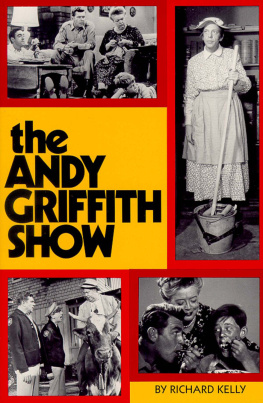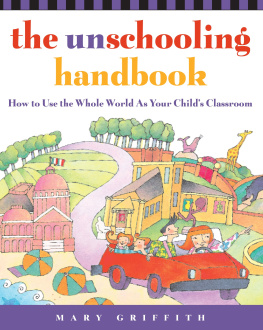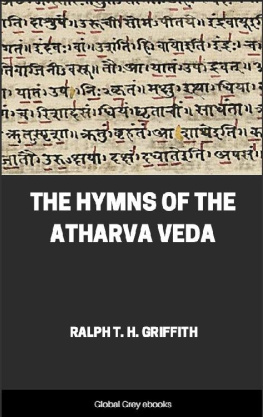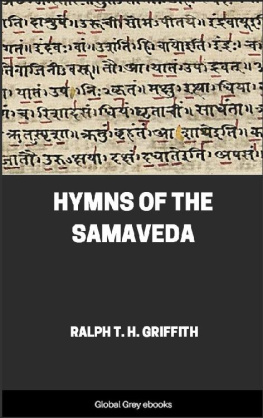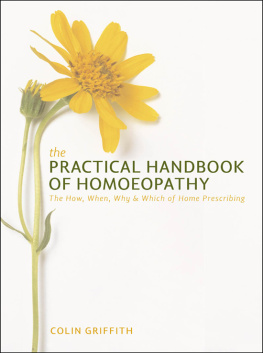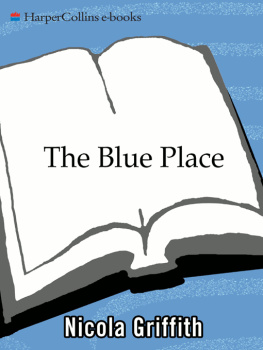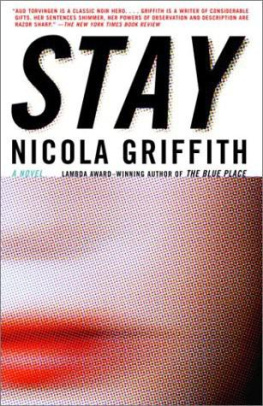D. W. Griffith: Interviews
Conversations with Filmmakers Series
Gerald Peary, General Editor
INTERVIEWS
D. W. Griffith
Edited by Anthony Slide

A prominent film scholar once asked me what it was about D. W. Griffith that attracted such crazy zealots. I dont know the answer, but I dedicate this book to four of them:
Barnet G. Bravermann
Ira Gallen
Arthur Lennig
Seymour Stern
www.upress.state.ms.us
The University Press of Mississippi is a member of the Association of American University Presses.
Copyright 2012 by University Press of Mississippi
All rights reserved
Manufactured in the United States of America
First printing 2012
Library of Congress Cataloging-in-Publication Data
D. W. Griffith : interviews / edited by Anthony Slide.
p. cm. (Conversations with filmmakers series)
Includes filmography and index.
ISBN 978-1-61703-298-1 (cloth : alk. paper) ISBN 978-1-61703-299-8 (ebook) 1.
Griffith, D. W. (David Wark), 18751948 Interviews. 2. Motion picture producers and directors United States Interviews. I. Slide, Anthony.
PN1998.3.G76D44 2012
791.430233092 dc23
2012002777
British Library Cataloging-in-Publication Data available
Contents
George Blaisdell / 1914
Robert E. Welsh / 1914
Theatre Magazine / 1914
New York Dramatic Mirror / 1914
Robert Grau / 1914
New York American / 1915
Richard Barry / 1915
Roberta Courtlandt / 1915
Henry Stephen Gordon / 1916
Henry Stephen Gordon / 1916
Henry Stephen Gordon / 1916
Henry Stephen Gordon / 1916
Henry Stephen Gordon / 1916
Henry Stephen Gordon / 1916
Edward Weitzel / 1916
Pictures and Picturegoer / 1917
Moving Picture World / 1917
New York Times / 1917
Exhibitors Trade Review / 1917
Paul H. Dowling / 1918
Harry C. Carr / 1918
New York Times / 1918
Harry C. Carr / 1918
Harry C. Carr / 1918
New York Times / 1919
Moving Picture World / 1919
Hazel Simpson Naylor / 1919
Exhibitors Trade Review / 1919
Charles Gatchell / 1920
Frederick James Smith / 1920
Mary B. Mullett / 1921
Los Angeles Times / 1921
Edward Weitzel / 1921
Movie Weekly / 1922
Harry C. Carr / 1922
Shadowland / 1922
New York Times / 1922
New York Times / 1922
Louella Parsons / 1922
Photoplay / 1923
Sara Redway / 1925
Myron M. Stearns / 1926
Selma Robinson / 1926
Frederick James Smith / 1926
Tom Waller / 1927
AMPAS Bulletin / 1928
Walter Huston / 1930
Motion Picture Herald / 1933
Mildred Mastin / 1934
Daily Express / 1935
Grace Kingsley / 1936
Herb Sterne / 1939
James Warnak / 1944
Fred W. Fox / 1947
Seymour Stern / 1947
Ezra Goodman / 1948
Introduction
When I began writing books on film history some forty years ago, my greatest admiration was for D. W. Griffith, his films, and his leading players. My second book, published in 1973, was The Griffith Actresses, devoted to the major stars in the directors stock company, and while Griffith had long since died, I was able to know well some of his discoveries, including Blanche Sweet, Margery Wilson, Miriam Cooper, and, of course, Lillian Gish. The Griffith Actresses was followed two years later by The Films of D. W. Griffith, coauthored with my mentor, Edward Wagenknecht. Since that time, many years even decades have gone by since I gave careful consideration to Griffith, and so I am happy, as I enter old age, to return to the master with this anthology of interviews. D. W. Griffith may have gone out of style, been assaulted, denigrated, and, quite frankly, trashed by many, and had his work and his career diminished, but I make no apologies for remaining his faithful and devoted admirer and defender.
I am still a few years younger than was Griffith when he gave his last interview in the spring of 1948, but like him, I respond, I can say anything I want about Hollywood. And like Griffith, I am very aware how much those who have come along later have borrowed from my pioneering works be they on the printed page rather than the illuminated screen. But enough of me; this book, as it should be, is about D. W. Griffith and his commentary in more than forty interviews published between 1914 and 1948.
I would like to believe that the interviews that follow constitute almost everything in which Griffith participated and which may be defined as interviews. Certainly, I have tried to be broad in my approach to the anthology, while at the same time discarding pieces which it would be impossible to classify under the heading of interviews. Sometimes the comments from Griffith in these interviews are few, sometimes repetitive. As Roberta Courtlandt wrote in the August 1915 issue of Motion Picture Magazine, One doesnt interview David Wark Griffith. Hes too busy. Aside from the interview, or more honestly conversation, between Griffith and Walter Huston, which served as a prologue to the sound reissue of The Birth of a Nation, the interviews here do not use the modern questions and answers format. They were conducted and published in an earlier time prior to the invention of the audio tape and are best described under the heading of narratives. Indeed, one might argue that the motion picturerelated interview, as such, did not exist during Griffiths working lifetime.
One interview that will not be found here is that titled An Interview with D. W. Griffith of Biograph by Leonard Hall. While it is probably the most illuminating of early interviews, and one that, incredibly, is often cited as legitimate, it is, in reality, a fake. In August 1936, The Stage magazine decided to publish an anniversary issue in which various pieces would appear that might have been published twenty-five years ago, in 1911, if The Stage had existed back then. One such piece was that by Leonard Hall (on page 112), which, on closer inspection, could not have appeared in 1911 as one of the films cited was not produced until 1912.
It was not possible to reprint Frank Nugents Up the Years with D. W. Griffith, which appeared in the November 17, 1935, issue of the New York Times. In it, Griffith refers to the past as ancient history, recalls Noel Cowards brief appearance in Hearts of the World, and identifies The Thin Man as the best film he has seen (some four times) in recent years, and pays tribute to its director, W. S. Van Dyke.
The earliest of the published interviews date from 1914 and the last from 1948, the year in which Griffith died. It is fascinating to read the piece in the June 1914 issue of The Theatre; technical descriptions today which are known to all, such as the close-up or the fade-out, did not exist back then, and the interviewer/writer struggles hard to come up with his own descriptive terms. While some of the interviews concentrate on specific films, including The Birth of a Nation, Intolerance, Way Down East (but not the ice floe sequence), and, most prominently, Hearts of the World, the subjects covered can be quite broad and surprising. Without bitterness, the director laments his failure to patent some of his innovations, most notably the close-up and the fade-out (although whether these could actually be patented is somewhat questionable). Modern readers and scholars will be surprised at the amount of attention that Griffith devotes to exhibition. As early as The Making of a Masterpiece by Edward Weitzel in the September 30, 1916, issue of the
Next page

